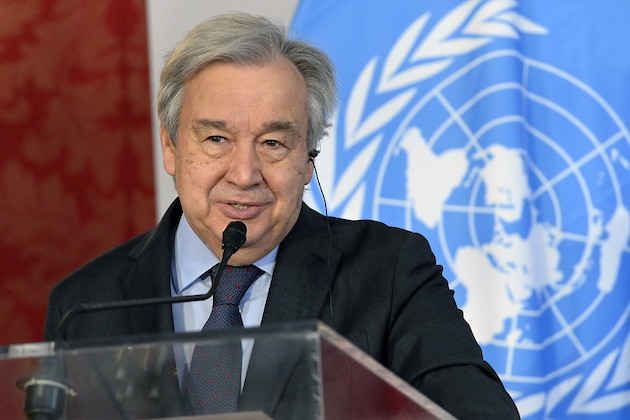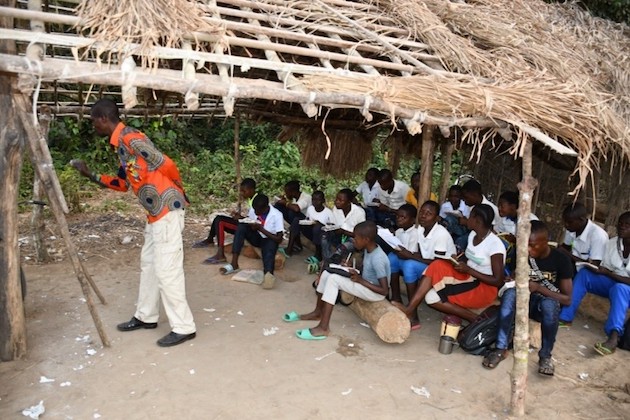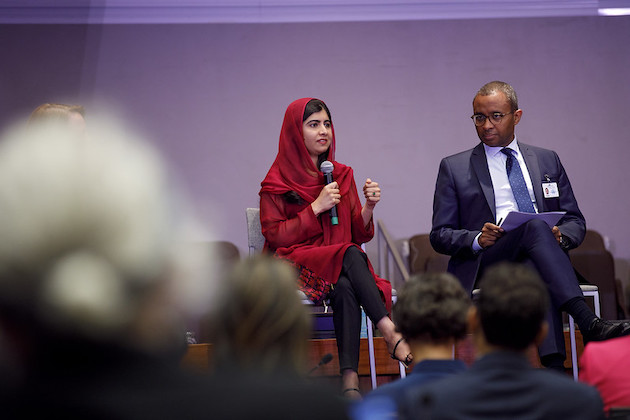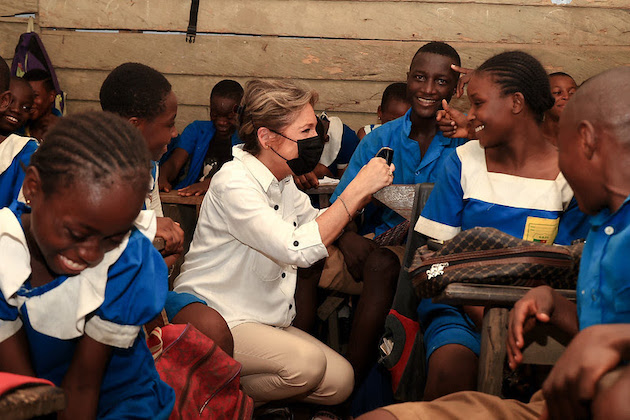NAIROBI, Feb 03 (IPS) – The world is in the throng of a monumental, damaging, and unprecedented global education crisis. Wars, protracted conflict, extreme climate changes, hunger, COVID-19, and economic uncertainties are pushing children out of the education system.
In 2016, an estimated 75 million children in crisis needed educational support. Today, the number has tripled to 222 million. From Afghanistan, Moldova, Colombia, Libya, Iraq, Somalia, and South Sudan, as life as they knew it crumbles around them, education is their last hope.
“The dreams of 222 million girls and boys are being crushed by conflicts, displacement, and climate chaos. Nobody knows this better than Education Cannot Wait — an education lifeline for children across 40 countries in crisis,” said UN Secretary-General António Guterres.

“At February’s financing conference, I urge leaders to commit to investing in education systems that can support those being left behind. Let’s keep dreams alive. Let’s keep hope alive. Let’s keep pushing for the brighter future every child deserves.”
Not only are affected children furthest left behind the education system missing out on lifelong learning and earning opportunities, but they are also the most vulnerable to sexual and economic exploitation, human trafficking, and recruitment into militia groups.
Yet funding is insufficient to push back against multiple challenges so that children can access a safe, inclusive, quality education. For this reason, leaders across the globe will come together at the Education Cannot Wait High-Level Financing Conference on February 16-17, 2023, in Geneva, Switzerland, to make good on commitments to ensure every child, everywhere, is offered quality education.
Yasmine Sherif, the Director of Education Cannot Wait, explains that the ECW High-Level Financing Conference is a “crucial opportunity to turn commitments from the Transforming Education Summit (TES) into action. By providing substantive funding contributions to ECW, strategic donor partners can ensure quality education for girls and boys in the toughest crisis contexts around the globe.”
She further stressed that “now is the time to redouble our collective efforts if we want to achieve the Sustainable Development Goals (SDGs) by 2030. Education – SDG4 – must be at the center of these efforts, as it is the foundation for all other goals to be achieved.”

Co-hosted by ECW and Switzerland and co-convened by the Governments of Colombia, Germany, Niger, Norway, and South Sudan, the Geneva event will be open to the public as a live-streamed virtual event.
The heart of the conference agenda is a concerted global push to mobilize much-needed resources from donors, foundations, and high-net-worth individuals to deliver on ECW’s four-year strategic plan, which will mobilize US$1.5 billion in additional resources to reach 20 million children and adolescents caught in some of the world’s worst humanitarian crises.
Keynote speakers include the UN Special Envoy for Global Education and Chair of ECW’s High-Level Steering Group, Gordon Brown; Federal Councillor of the Swiss Confederation, Ignazio Cassis; Federal Minister for Economic Cooperation and Development, Germany, Svenja Schulze; Minister of Education, Niger, Ibrahim Natatou; Minister of International Development, Norway, Anne Beathe Tvinnereim; Minister of General Education and Instruction, South Sudan, Awut Deng Acuil; and Minister of Education, Colombia, Alejandro Gaviria.
Top-level representatives from UN agencies, civil society, governments, and global youth representatives will also participate in the two-day event, which expects over 400 delegates in-person and many more joining online globally.
The significance of this conference cannot be over-emphasized, for 78 million out of an estimated 222 million children and adolescents impacted by conflict, and other emergencies are out of school altogether.

“At this pace of progress,” the Nobel Peace Prize Laureate Malala Yousafzai cautions, “Girls in crisis-affected countries may not be able to complete their education until 2063. Young people in countries affected by crises will have to wait for generations to have their right to education.
“I urge leaders to ensure a safer and fairer future to all children by fully funding Education Cannot Wait. Please make sure that 222 million children are not left behind. Please ensure that all children can access safe, quality, and free education.”
To accelerate progress, the event will kick off with a high-level segment on February 16, 2023, inviting global leaders to position the education needs of crisis-impacted children at the top of the international agenda.
On the first day of the conference, leaders will announce substantial new financial support to Education Cannot Wait to deliver on the Fund’s goal to reach 20 million girls and boys over the next four years.
A notable spotlight on Afghanistan – headlined by “I Am Malala” co-author Christina Lamb and Somaya Faruqi, captain of the Afghan Girl’s Robotic Team – will provide a key advocacy moment on the first day of the conference, along with important sessions on A New Way of Working, Delivering with Humanitarian Speed and Development Depth, and Leaving No One Behind in Forced Displacement Situations.
On the second day, February 17, 2023, a series of roundtable discussions to share ideas, experiences, and stories to transform education delivery in emergencies worldwide will be featured.
Founded in 2016, Education Cannot Wait has already reached close to 7 million children and adolescents with holistic education support, including upgrading learning spaces and ensuring children have quality learning materials, training and financially supporting teachers, and providing mental health services, school feeding, and other whole-of-child solutions. The Fund has already raised over US$1.1 billion from donors, the private sector, and philanthropic foundations.
IPS UN Bureau Report
Follow @IPSNewsUNBureau
Follow IPS News UN Bureau on Instagram
© Inter Press Service (2023) — All Rights ReservedOriginal source: Inter Press Service


